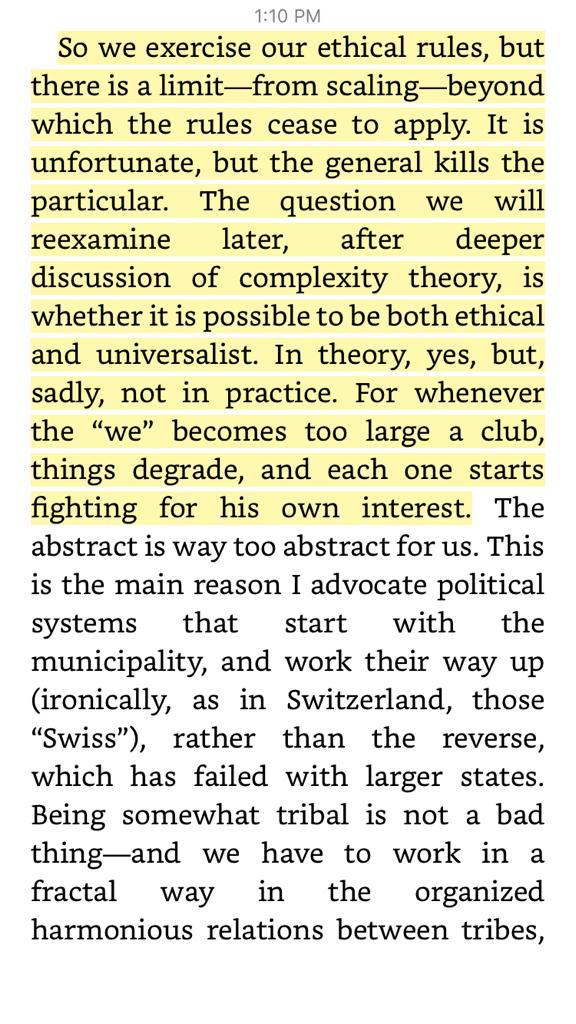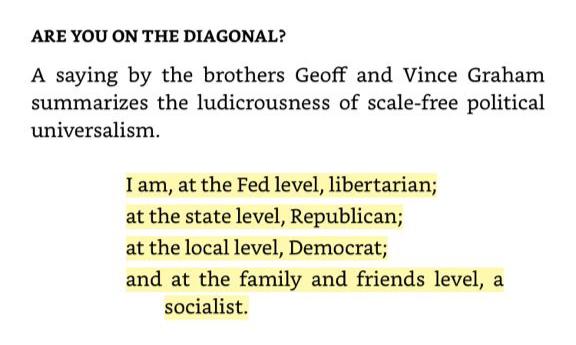I finally finished the book. At the beginning I didn’t like it and abandoned it for a while. Then I saw Naval saying it is the best book he read in 2018. I decided to pick it up again.
I got the idea of skin in the game. The idea of bearing the consequences of both the upside and downside of one’s decisions.
I got how beareaucrats and economists have no skin in the game, since they don’t get the downside of their decisions.
The minority rule was a revelation. I think it is a must understand for anyone to know how the world works.
I didn’t fully understand ergodicity. And I think Lindy effect is similar to Bayes forecasts in the case of initial priors where one predicts something is going to continue for at least the same duration it has survived so far. I don’t know why he decided to call it Lindy effect.
Dynamic and static equality was a spot on. I don’t know how accurate is the data he presented but it confirms my bias on why the so called “economic equality” in Europe does more harm than good.
The idea of complex systems was also a spot on. I was talking to a friend the other day and he was saying I don’t know why when I talk to each of them they are smart, but when they are in a team the output is really bad. I was also talking to a different friend about marriage, and she highlighted how two sane persons become crazy once they are together. This all falls into the idea that the outcome of the parts together doesn’t equal the sum of the parts. Because with every node you add, the complexity grows exponentially and you have a totally new thing. At the end the structure of the system matters more than the inputs/parts.
Then there is the idea of ruin. While I totally got it I didn’t understand how you avoid making it stop you from taking risks. At the end of the day we need some belief to take the big risks that result in big outcomes. Taking small risks with high outcomes at extremistan only works for a small subset of people. Or maybe one can argue that the whole product/market validation methods in software startups are only to take small risks and avoid ruin. I don’t know.
The biggest challenge for me was connecting the dots in the book. While the book talks about the same topic all across, the flow seemed broken and the different parts seemed disconnected. I understood the different subparts with different degrees but overall failed to connect the overall flow. Maybe there isn’t one.
There is also the style of the author. It is aggressive and he almost attacks every one he disagrees with. Most specially Saudi Arabia. It got to a point where it became comical every time I read one of those sentences where he attacks one of his opponents. I laughed out loud reading some of them.
And I wasn’t fully convinced by some of the arguments related to lack of skin in the game. There were multiple points where Nassim abstracted a fairly complex topic in a simple manner similar to those he was attacking throughout the book (e.g. the Arab-Israeli conflict).
In general I enjoyed it and it was worth reading. I recommend you doing so as well.

